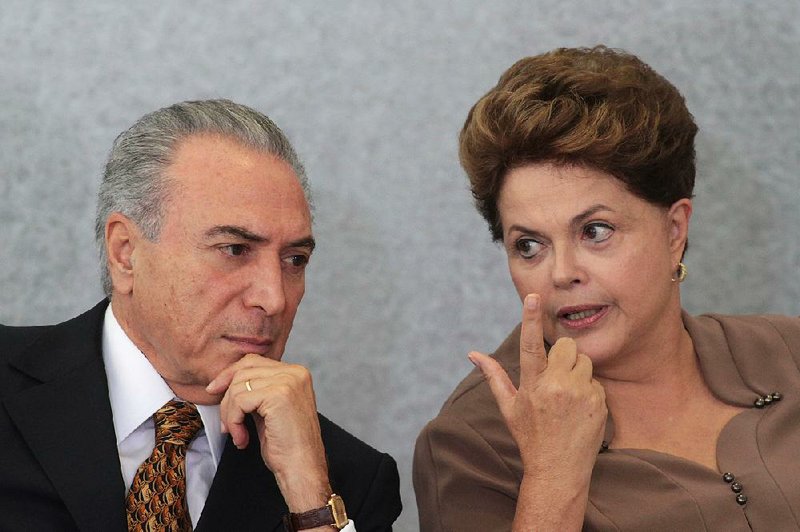RIO DE JANEIRO -- Brazil's Senate on Thursday began deliberating whether to permanently remove President Dilma Rousseff from office, the final step in a leadership fight that has paralyzed Congress and cast a pall over a nation suffering a severe recession.
Brazil's first female president is accused of illegally shifting money between government budgets to mask yawning deficits. Detractors say she did that to shore up support and they argue those maneuvers exacerbated the recession in Latin America's largest economy.
Rousseff denies wrongdoing and says her enemies, including the country's elites, who have fumed about the hold her Workers' Party has had on power for 13 years, are conducting a "coup."
Senators are now embarking "on their most somber duties," said Ricardo Lewandowski, the chief justice of the country's highest court who is overseeing the trial. "To judge the president, [senators] must act with the utmost impartiality and objectivity, considering only the facts they are presented and the laws."
The impeachment push started late last year when Eduardo Cunha, then the speaker of the lower House of Deputies, introduced the measure. In April, his chamber overwhelmingly passed it. Then in May, the Senate voted 55-22 to impeach and suspend Rousseff for up to 180 days.
Vice President Michel Temer, Rousseff's onetime ally who turned nemesis, took over. If the Senate votes to permanently remove Rousseff, Temer will serve the rest of her term, which goes through 2018.
Several days of testimony, including an address by Rousseff on Monday, will wrap up in a final vote next week.
Lewandowski on Thursday rejected several attempts by Rousseff's lawyers to suspend or annul the process.
Opposition senators accused Rousseff supporters of employing chicanery to delay the process.
"I want to protest the use of the word 'chicanery,'" said Rousseff lawyer Jose Eduardo Cardozo. "At no point has the defense used any techniques to procrastinate."
Lewandowski did accept one of the defense's requests: to prohibit testimony from a prosecutor who wrote a key report about Rousseff's alleged transgressions.
The defense argued, and Lewandowski agreed, that Julio Marcelo de Oliveira had shown bias against Rousseff by encouraging people on social media to rally against her and even attending anti-Rousseff protests.
Senators wasted no time in getting in their licks, even on a day largely dedicated to procedural matters.
"Up until now, all we have seen are excuses by the defense of President Dilma," said Sen. Casio Cunha Lima from the opposition Brazilian Social Democratic Party, who added that the slow process was "bleeding the country."
Sen. Gleisi Hoffmann, a member of Rousseff's Workers' Party, had a different take.
"I never thought I was going to be elected senator to judge, in a questionable trial, the first woman elected president of the country," Hoffman said. "It's very sad for me."
Like many in the Senate and the lower chamber, Hoffman is being investigated for corruption. In her case, investigators are looking at whether she used embezzled funds from Petrobras as campaign contributions.
"No one here has the right to judge anybody," she said. "What moral standing does the Senate have to judge the president of the republic?"
A Section on 08/26/2016
